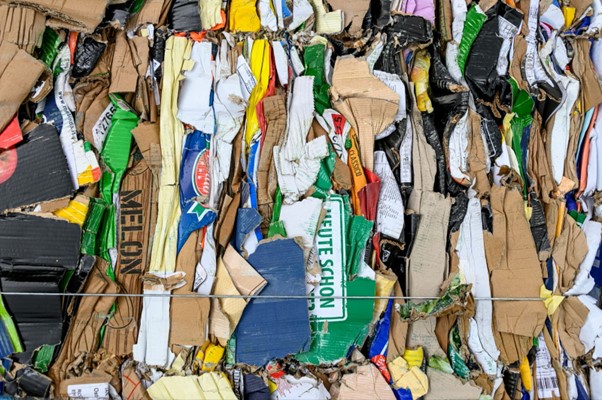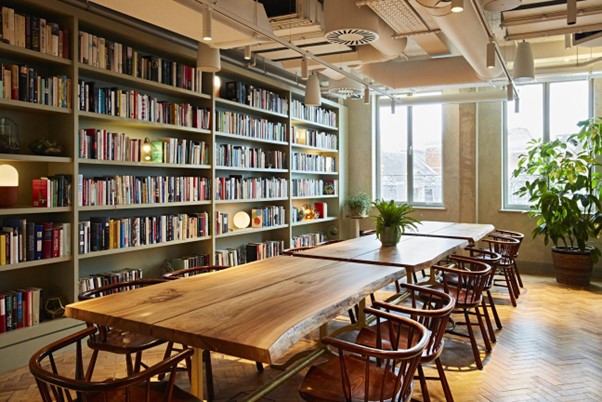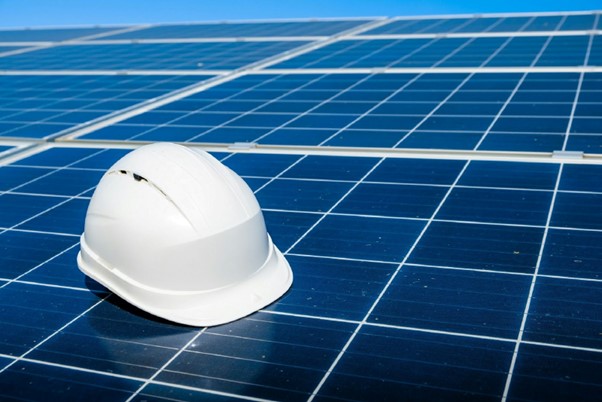Follow the Waste Management Hierarchy
The waste management hierarchy is a framework built to guide waste management decisions, giving top priority to prevention of waste, followed by re-use, recycling, recovery, and then disposal. The hierarchy should be followed in any refurbishment or hotel clearance project to ensure as little waste goes to landfill as possible. For the hotel clearance part of your refurbishment process, hiring a specialist hotel clearance company or soft strip contractor like The Hotel Clearance Company will guarantee the waste management hierarchy is followed and that you recover as much as possible from your unwanted assets.
Keep and reuse what you can
The first step to a sustainable hotel clearance process is to reduce the amount of materials and items you will be removing in the first place. There may be assets which can be refurbished themselves to give them a new lease of life and allow you to keep them. There may be others, like beds or other wooden furniture, that you can take apart and repurpose into something else like a room divider or even artwork.
Keeping and reusing as much as you can in this way is much more sustainable in a few ways. Not only does it mean less material ends up in landfill, it means that less energy is used in removing, storing, transporting, and recycling it. There is also an inherent cost saving in this, as you’ll be spared the costs associated with removal, storage and transport and you won’t have to pay to replace your unwanted asset with something new.
Sell or donate what you can’t reuse
For assets you can’t find a use for, the next step is to sell or donate what you can. At The Hotel Clearance Company, we will organise the sale of your assets on your behalf via private treaty sales or auction to maximise your financial return. You’ll find that a lot of your unwanted assets can be sold depending on their condition, with high-value items such as kitchen and catering equipment and bulk amounts of furniture seeing the most success at hotel asset clearance auctions.
You can also donate unwanted assets, whether through choice or because they weren’t sold when they went to auction. Donation also comes with the added social value benefit as it is a great way to give back to the community – for example, your local homeless shelter may accept donations of furniture, with high-quality furniture to be used and lower quality furniture to be sold with all proceeds going to the charity.

Recycle what you can’t sell or donate
For materials or broken assets which can’t be sold or donated, the next step is to recycle as much as you can. Textiles, untreated wood, glass, and plastics are among the things which can commonly be recycled. Materials from any knocked-down walls can also be recycled, such as concrete or bricks which can be crushed and reused.
It’s important for these materials to be sorted on-site to avoid contamination and to maximise how much can be recycled. You should also work closely with your local recycling centre to find out exactly what materials they can accept. Professional hotel clearance services like The Hotel Clearance Company will have processes already in place to ensure everything that can be recycled, is recycled.
Unfortunately, not all materials can be recycled, such as any hazardous materials, insulation, and anything that has been contaminated with adhesives or solvents. Treated wood often cannot be recycled through the same means as untreated wood, so look into other ways of repurposing it, such as selling to a company which works with reclaimed wood.
Send materials for recovery where they can’t be recycled
For material which can’t be reused, sold, donated, or recycled, recovery is the next stage. Recovery processes aim to retrieve value from waste materials through methods other than recycling, such as by extracting useful energy or materials.
This includes processes such as incineration with energy recovery, where waste materials are burned to generate electricity or heat; anaerobic digestion where organic waste is broken down to produce biogas to be used as energy or digestate to be used as fertiliser. Similarly, materials can be recovered through composting or other treatments.
Once all other avenues have been explored, materials can be sent to landfill – but far less than if the waste hierarchy had not been followed. The hierarchy makes up the base of a sustainable hotel refurbishment process, both in terms of the initial clearance and the waste generated during construction work. It may seem complex, but a good soft strip contractor or clearance company will handle this for you.

Use Sustainable Materials
Once the hotel clearance process has been carried out, you can continue your sustainable refurbishment through the use of sustainable materials. As we mentioned before, reusing your own assets and materials is the most sustainable option, but it’s not the only option out there. Should you need to bring in additional materials, look to use things like recycled steel, reclaimed wood, and other materials which have been repurposed from their previous use.
Look to source new materials locally to reduce the carbon footprint associated with transporting them from further afield. This is also a chance to future-proof your hotel’s sustainability – by opting for eco-friendly materials which can be recycled at the end of their life. This can include things like bamboo for your floors or furniture, sheep’s wool for insulation, hemp or organic cotton textiles, and non-toxic, natural finishes for wood.
Consider Energy Efficiency
A hotel refurbishment is the perfect chance to make your establishment more energy efficient. Not only will this make the running of the hotel more environmentally-friendly and reduce your carbon footprint, but it will reduce running costs. Take advantage of the empty rooms to improve insulation in walls, roofs, and floors, to reduce heat loss and thus reduce your heating demands. This will also have the opposite effect in summer, with less cool air created by air conditioning systems lost through the structure. Energy-efficient windows – double or triple glazed – will also reduce heat transfer.
Replace any incandescent or fluorescent bulbs with LED lights, as these use significantly less energy and have longer lifespans. Smart lighting controls like motion sensors, dimmers, and timers will ensure lights are only used when needed, so no lights are left on all day in unoccupied rooms. You can also implement key card systems which require a key card to be placed in a holder inside the room in order for the lights and other electronics to work.
There are energy-efficient choices to make throughout any hotel, so make sure you research which options will be best for your requirements. For example, you can choose energy-efficient appliances for your kitchens and laundry rooms, implement water conservation measures like rainwater harvesting and greywater recycling, and even look for more energy-efficient solutions to traditional electric water heaters. You can also consider renewable energy solutions to provide power to your hotel, such as solar panels. This will reduce the amount of non-renewable energy you need to use, reducing your carbon footprint and lowering your electricity costs.

Discuss Your Hotel Clearance Requirements Today
Hotel renovations are essential for elevating guest satisfaction, staying competitive, and boosting revenue. They are also a chance to improve your hotel’s sustainability by using energy-efficient materials, installing renewable energy sources, and using smart technology to reduce your energy usage. There are also many ways to make your refurbishment process itself as sustainable as possible – particularly by using the waste management hierarchy.
Assessing your property’s needs and planning strategically are crucial: using professional services like The Hotel Clearance Company will streamline your process, minimise downtime and costs, and ensure waste is managed correctly to keep as much material as possible out of landfill.
If you’re looking to discuss your hotel clearance requirements in more detail, get in touch with The Hotel Clearance Company. Whether your business is due to go through a refurbishment, a change in property use, or you are liquidating assets, we are here to help.
Our expert team can be contacted by calling 020 8123 8241 or visit The Hotel Clearance Company and fill out our online contact form.
